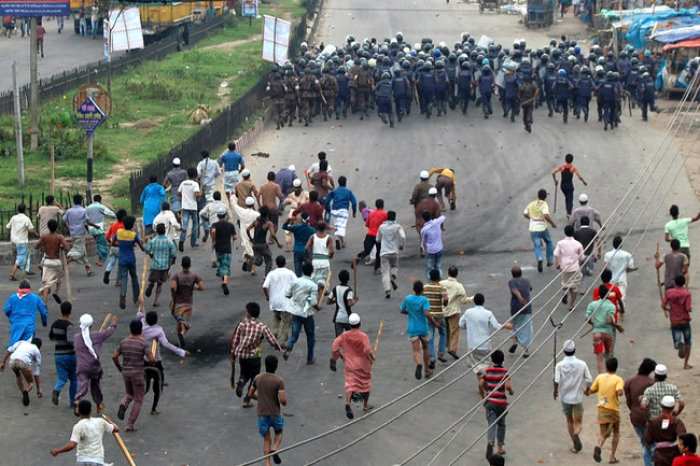Christian Convert From Islam Hacked to Death in Bangladesh

Unidentified attackers hacked a Christian convert to death this week in northern Bangladesh in the latest attack in the Muslim-majority country.
The incident occurred Tuesday morning in the northern city of Kurigram, where 68-year-old Hossain Ali was hacked to death by two assailants wielding machetes.
Tobarak Ullah, the police chief of Kurigram, told the AFP that the militants were able to carry out the heinous crime by using distractions and a getaway vehicle.
"He died on the spot. The attackers exploded a molotov cocktail to create panic and left the scene on a motorcycle," Ullah said.
The police chief added that while Ali had converted to Christianity several decades ago, he was not necessarily an outspoken opponent of Islam, calling into question the motive behind the attack.
"He was not a pastor or reputed Christian. Also there were some disputes over his family properties," Ullah suggested.
In recent years, there have been multiple reports of machete attacks on those who are against Islam.
In February 2015, prominent atheist blogger Avijit Roy and his wife, Bonya Ahmed, were attacked with machetes outside of their home in Dhaka.
In March 2015, another blogger, 27-year-old Oyasiqur Rhaman, was killed in a similar fashion near his home in Dhaka's Tejgaon Industrial area.
In January, the Islamic State terror group claimed responsibility for the murder of a retired doctor in the town of Jhenaidah because he had converted from Islam to Christianity.
The U.S.-based SITE Intelligence Group quoted the terrorist group as saying, "Soldiers of the caliphate were able to eliminate the apostate, named 'Samir al-Din', by stabbing him with a knife."
Despite reports of this nature, government officials have maintained that the Islamic State has not permeated the country, blaming these recent religion-fueled attacks on political dissidents.
Hasan Hafizur Rahman, police chief of Jhenaidah, told Reuters in January that authorities "are not aware of any claim from any terrorist groups" in relation to the slaying of the retired Christian doctor.
According to the Los Angeles Times, Mohammed Shahriar Alam, state minister for foreign affairs, said in an interview earlier this year that although the country continues to deny the existence of the Islamic State within its borders, it has acknowledged the possibility of homegrown extremist cells.
"There is an effort by a group of people in different parts of the country — probably being supported from foreign lands — to destabilize Bangladesh," Alam said. "We are not immune to what is happening in the rest of the world. But the government is determined not to allow them to succeed."
While Bangladeshi authorities have denied the presence of the Islamic State in their country, Prime Minister Sheik Hasina said this week that Muslim leaders in the country must do more to denounce terrorism.
"I seek your cooperation in establishing the belief among people that there's no place of militancy and terrorism in Islam [...] This is a religion of peace. Please, publicize it," the prime minister told the National Khatib Conference in Dhaka, as reported by NDTV.




























